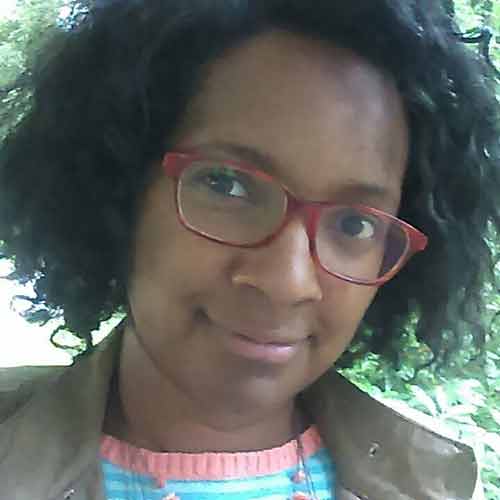
When she first started her journalism career in high school, Rachel Grant was just looking for an elective to take.
Her older siblings had been on the school newspaper and yearbook, so she figured she’d give it a shot. Grant, now a doctoral student in journalism at MU, began writing for the newspaper and yearbook and received awards for articles she had written. That’s when she knew she had a knack for this line of work and continued with it.
She worked for the University of Arkansas at Little Rock’s newspaper. During her time at the newspaper was the 50th anniversary of the Little Rock Nine, a group of nine black students who were prevented from enrolling in a segregated high school. She covered the anniversary events that took place.
This work led her to discover Daisy Bates, a civil rights activist and journalist for the Arkansas State Press. Bates’ house had been a central headquarters for the Little Rock Nine as they integrated into the all-white Central High School. This story sparked Grant’s interest to study black feminism history. She wrote her master’s thesis on Bates and gained knowledge of black women in history and their roles in the civil rights movement.
Now, she spends her time researching historic black women, such as Bates and Rosa Lee Ingram, while working toward her Ph.D. in journalism at MU. Her emphasis is is in race, gender and class media studies.
“Luckily, when I chose this program, there were several people who were already engaged in that type of research who kind of helped me foster and take that a little step further,” Grant said.
Assistant journalism professor Cristina Mislán is one of the people who helped Grant take on this area of study. This past fall, they worked on an independent research project of black feminist media studies, which led to Grant finding a subject for her dissertation.
Her dissertation is in its beginning stages, but it will be taking a black feminist perspective on Ingram’s case. Ingram was a black female sharecropper in Georgia who was assaulted by a white male farmer in 1947. Her two sons saw what happened and killed the man, and all three of the Ingrams were put on death row.
“[The dissertation is about] the court case, where the project was centralized, [and also] on this idea of how black female journalists advocate for black women and how, through the lens of black feminism, that understanding of advocacy and lived experiences and social justice can be used through media lenses,” Grant said.
For Grant, history is a large part of understanding our nation’s current racial climate. She said it is important to try and understand other perspectives and learn from what has happened in the past, but also to go beyond the normal figures that people usually think of when it comes to black history.
“I wish the celebration of Black History Month would be understood in a larger context that, you know, this is not just celebrating the big people like Martin Luther King or Malcolm X,” Grant said. “Black history wasn’t just about those leaders, but very much about a long struggle for a community who had people [who are] the unsung heroes of Black History Month.”
But black history is more than a month for Grant.
“For me, Black History is every day. Not only because I am a black woman, but also that’s what I study,” Grant said.
Grant said Black History Month should be important for all Americans because America is one large community where everyone has their own role to play that affects all of those surrounding roles. And through those roles, people should celebrate all cultures all year long.
“If we’re just going to delegate celebrations to one month, I think we missed the mark on understanding the people we live with, the people we’re surrounded by, and it goes back to ignoring the lives of individuals,” Grant said.
Grant continues studying the history of prominent black women and following her call to tell their stories as she makes her own mark on history.
“Black history month is a way for me and for other people who do this type of research — the celebration that we get to have, discussions that we have, when we’re doing this research, now extends to a larger public, a larger group of people,” Grant said. “In a way, we get to celebrate what we celebrate every day.”
_Edited by Katherine White | [email protected]_